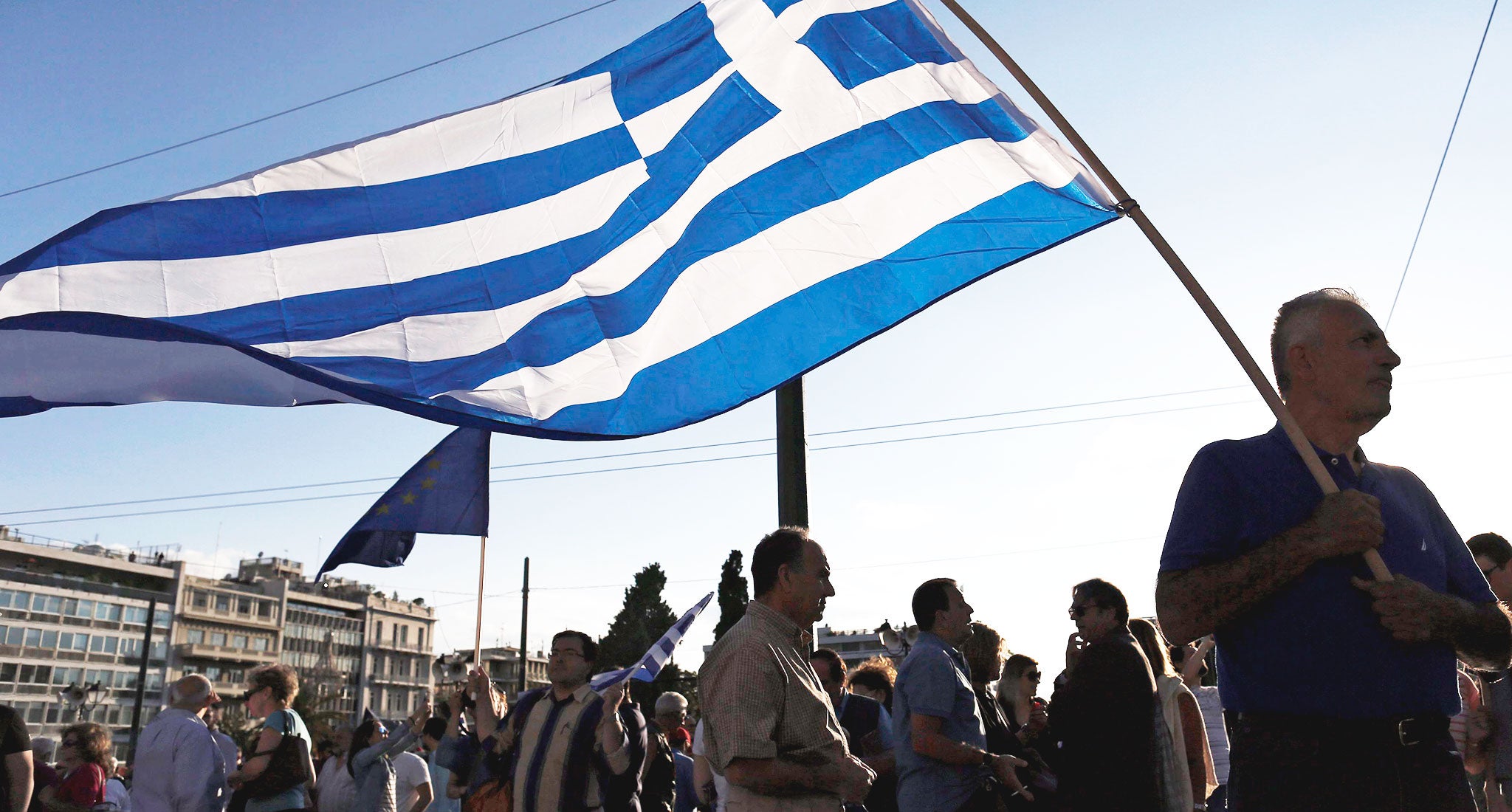Greek government reveals referendum question...and it's long and vague
Greece's government have put the country's future in its people's hands. But understanding the question could require a degree in economics

Your support helps us to tell the story
From reproductive rights to climate change to Big Tech, The Independent is on the ground when the story is developing. Whether it's investigating the financials of Elon Musk's pro-Trump PAC or producing our latest documentary, 'The A Word', which shines a light on the American women fighting for reproductive rights, we know how important it is to parse out the facts from the messaging.
At such a critical moment in US history, we need reporters on the ground. Your donation allows us to keep sending journalists to speak to both sides of the story.
The Independent is trusted by Americans across the entire political spectrum. And unlike many other quality news outlets, we choose not to lock Americans out of our reporting and analysis with paywalls. We believe quality journalism should be available to everyone, paid for by those who can afford it.
Your support makes all the difference.The Greek government has announced the question its citizens will be answering in the upcoming referendum. But the ballot paper, which isn’t exactly crystal clear, has sparked some head-scratching.
Translated, it reads: “Should the proposal which was submitted by the European Commission, the European Central Bank and the International Monetary Fund at the Eurogroup of June 25, 2015 which consists of two parts that together consist of their comprehensive proposal be accepted?
Voters need to decide whether they want to yes: accept the proposal or no: reject the proposal. It’s a “simple question” says Reuters.
Though, with a title like: "Reforms for the completion of the Current Program and Beyond", and "Preliminary Debt sustainability analysis", the government might have run out of room on the ballot paper to include the proposed plan’s name.
Greece’s Prime Minister Alexis Tsipras announced that the decision to approve the programme and default on 1.6 billion euros owed to the IMF would be put in the hands of the people. They’ll be voting on July 5, which fortunately gives a bit of time to unpick what exactly they’re being asked to decide.
Join our commenting forum
Join thought-provoking conversations, follow other Independent readers and see their replies
Comments